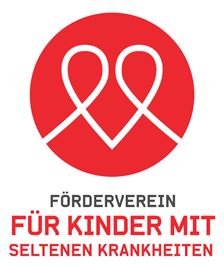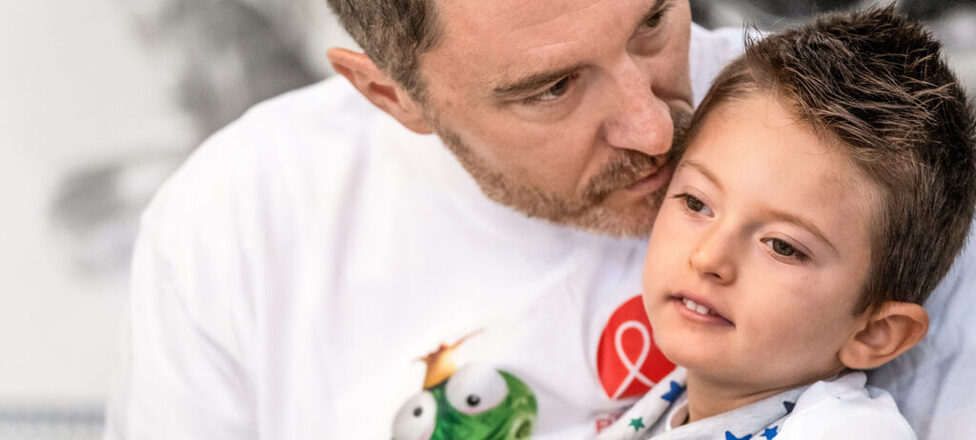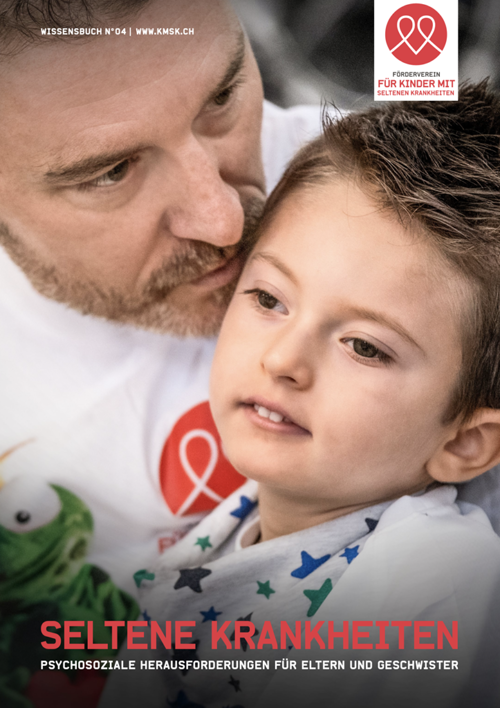4. KMSK knowledge book "Rare diseases - psychosocial challenges for parents and siblings"
Thanks to
the knowledge of 651 families from the KMSK Family Network, the fourth KMSK Knowledge Book "Rare Diseases
- Psychosocial challenges for parents and siblings". This sheds light on the many different problems
that arise for affected families and shows what helps them to cope
Helps them to cope. After all, a rare disease upsets the lives of affected families,
destroys dreams and life plans, is a huge challenge for mothers, fathers
Mothers, fathers, siblings but also for grandparents. Professional careers have to be
careers have to be buried, relationships suffer, parents are often there 24 hours a day for their
sick children and forget themselves in the process. One affected mother
describes it like this: "I've experienced all kinds of feelings: sometimes overwhelmed, sometimes
guilty, sometimes absolutely furious with doctors and staff, sometimes hopeless,
deeply sad and unable to accept my fate. Then again
full of confidence".
Sincerely
Support association for children with rare diseases (KMSK)
Manuela Stier Founder and Managing Director Förderverein für Kinder mit seltenen Krankheiten (KMSK)
Prof. Dr. med. Anita Rauch President KMSK,
Director of the Institute of Medical Genetics at the University of Zurich
We are pleased to be able to offer the KMSK knowledge books "Rare Diseases" free of charge as print copies and for download thanks to the generous support of long-standing patrons.
KMSK Knowledge Book N° 4 (2021) Download
"Rare diseases - Psychosocial challenges for parents and siblings"
Order now
From November 2021
Print run
15 000 copies in German
You also have the option of ordering larger quantities of knowledge Quantity from us free of charge.
Welcome address: President (KMSK) Prof. Dr. Med. Anita Rauch
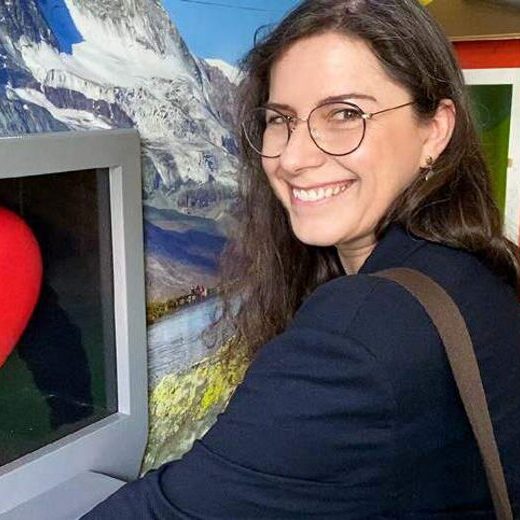
"Our job is to take away the parents' feelings of guilt"
The psychosocial challenges faced by parents whose child has a rare disease are usually great and complex, and occur in different phases and with varying degrees of intensity. For me as a geneticist, it is important to accompany the parents on their journey with great sensitivity, cautiously and yet honestly and openly. This also includes taking away the parents' feelings of guilt and explaining to them that the genetic defect has nothing to do with a bad genetic make-up.
President KMSK, Director and Full Professor of Medical Genetics Institute of Medical Genetics University of Zurich
STATEMENTS: INITIATOR/MANAGING DIRECTOR (KMSK) MANUELA STIER
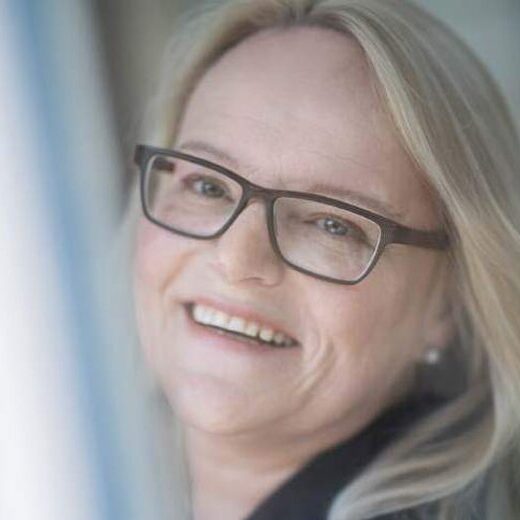
Impact of the four KMSK knowledge books "Rare diseases"
The idea of publishing knowledge books on the subject of rare diseases came about after countless conversations with affected families. I heard the same thing again and again: "After the diagnosis, we fell into a bottomless pit and wished we had a tool that would show us the experiences and knowledge of other affected families and give us the feeling that we are not alone." This is exactly where our four knowledge books come in. So far, over 42,000 copies have been distributed free of charge to our dialog groups.
Initiator/Managing Director of the Association for the Support of Children with Rare Diseases
Christine de Kalbermatten: Experiences of an affected mother
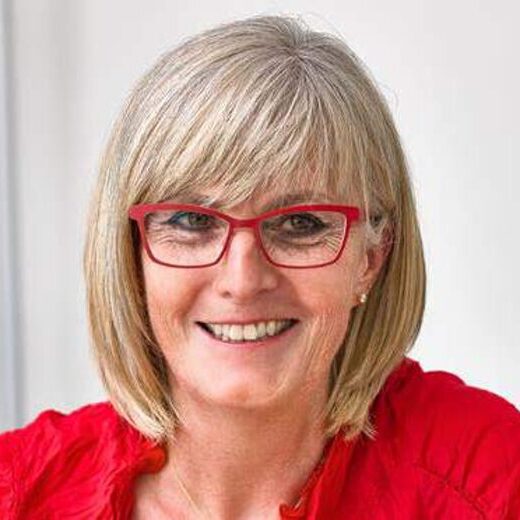
"Others should be able to benefit from our experiences and struggles"
When a family is confronted with the diagnosis of a rare disease, their world is turned upside down. After the initial shock, it is important to learn patience, to adapt again and again, and sometimes resilience awakens. Hidden resources can then unleash unexpected strength, so that the boldest projects become reality! After a long and rocky road, in 2017 I founded the association MaRaVal - maladies rares valais - rare diseases valais - the first cantonal patient organization dedicated to all rare diseases.
Affected mother, founder of MaRaVal - maladies rares valais - rare diseases valais
Fernando Carlen: Study
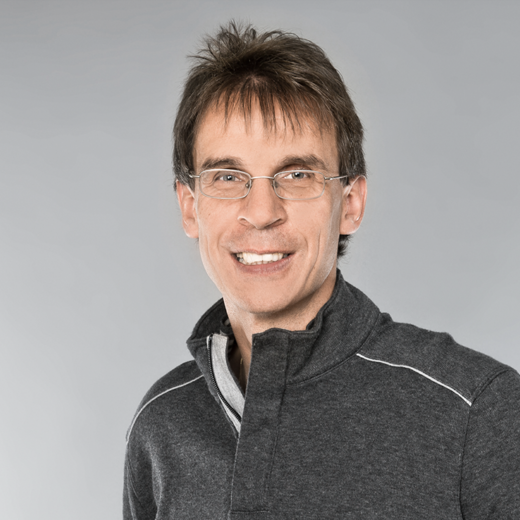
Challenges faced by family caregivers - relevant research findings
Two federal programs aim to support and relieve the burden on family caregivers. Within the funding program "Relief offers for caring relatives 2017-2020", 15 research projects and 60 models of good practice were documented. The study results largely reflect the experiences and statements of families affected by the diagnosis of a rare disease. However, it shows that a good half of those affected cannot find a suitable offer of support and relief.
Associate Professor FH, Project Manager Continuing Education Upper Valais, HES-SO Valais-Wallis - University of Applied Sciences for Health
Irene Kobler: KMSK INFORMATION PLATFORM FOR (NEW) AFFECTED FAMILIES
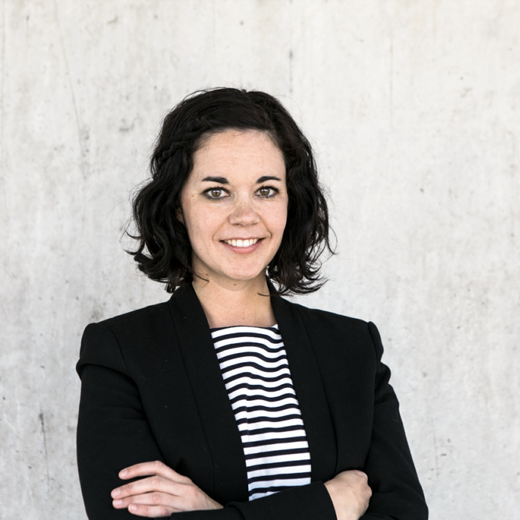
KMSK information platform for (newly) affected families
"Your child has a rare disease" - a diagnosis like this brings with it countless questions, uncertainties, fears and challenges for affected families. Information on rare diseases is often scarce, and trying to get an overview of support services and benefits proves to be a huge hurdle. The Association for the Support of Children with Rare Diseases is therefore launching a web-based information platform in collaboration with the Winterthur Institute of Health Economics at the ZHAW and the University of Applied Sciences Valais HES-SO.
MA Research Associate, ZHAW School of Management and Law Winterthur Institute of Health Economics WIG, Zurich University of Applied Sciences ZHAW
AFFECTED FAMILIES - MOMENT OF DIAGNOSIS - SARAH - WILLIAMS-BEUREN SYNDROME
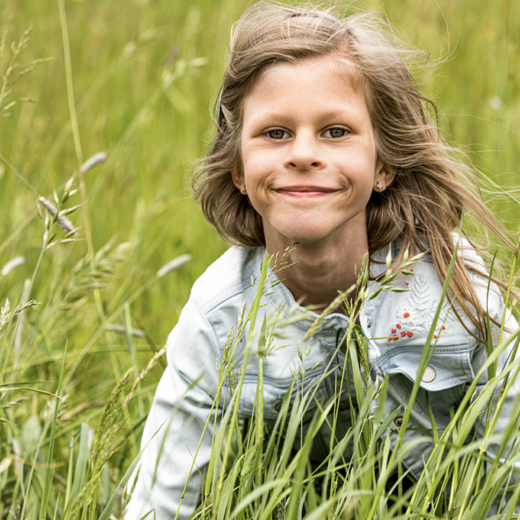
We were shocked, sad and felt lost and alone
The moment when the parents were told the diagnosis was very difficult. Sarah's mommy Jolanda says: "It was as if someone had pulled the rug out from under my feet. I tried to suppress my tears. I just wanted to get away and wake up from this nightmare." But with the results of the genetic test, they have it in black and white: their daughter has Williams-Beuren syndrome. Even though Sarah's illness is associated with limitations, there are also many positive aspects.
Lieve Romanino: University Children's Hospital Zurich
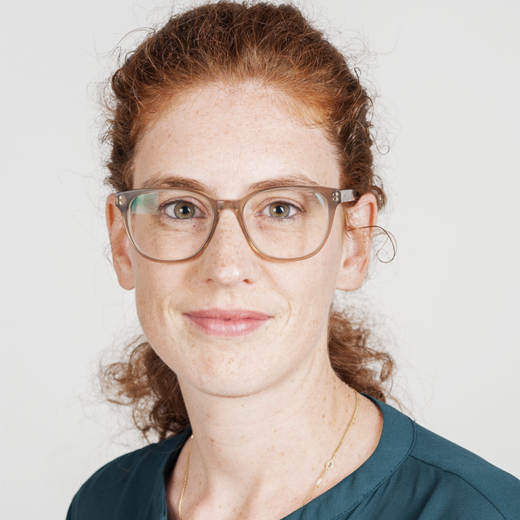
A stressful time in which we support the family
I am always deeply impressed by how adaptable parents are and how quickly they recover from the initial shock. Sometimes psychological support helps parents after the difficult diagnosis. They have to say goodbye to the image of a healthy child, which is associated with great sadness and countless questions. It helps the parents to know that the symptoms of their shock reaction will subside and that their emotions are normal.
Psychologist and psychotherapist, Department of Neuropaediatrics at the University Children's Hospital Zurich
Affected families - No diagnosis - What next? - Amy - No diagnosis
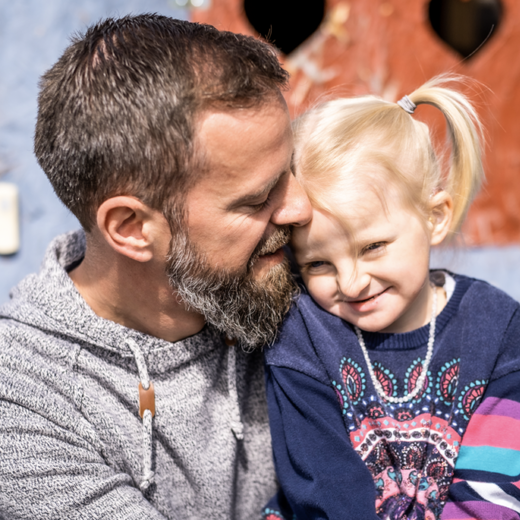
Optimism that even question marks can't dampen
A lot has changed for Melanie and Jürgen since the birth of their daughter Amy. Although no clear diagnosis could be made for their second-born, the girl has various impairments and has already had to undergo several operations. However, the family does not let uncertainties dampen their optimism. After all, Amy is a very special girl: "Anyone who gets to know Amy becomes a better person. She approaches everyone openly and takes them on board," says her mother.
Katrin Lengnick: Eastern Switzerland Children's Hospital
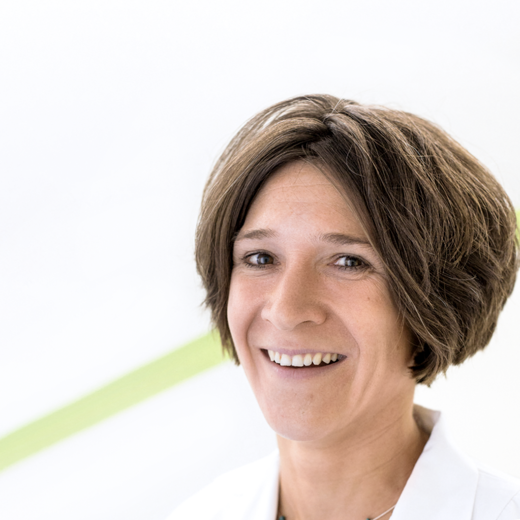
"The symptoms of affected children are often very unspecific at first"
The diagnosis is very complex. The symptoms of affected children are often very unspecific at first and it is only possible to classify them when characteristics become clearer. In addition, we often don't even know what exactly to look for. It is all the more difficult to find a needle in a haystack when you don't even know what the needle looks like. In her work, Katrin Lengnick repeatedly encounters children with symptoms that cannot be clearly diagnosed.
Specialist in pediatrics and adolescent medicine, specializing in neuropaediatrics and developmental paediatrics, Eastern Switzerland Children's Hospital
Affected families - Unknown path - Niam - MONOSOMY 1P.36.60
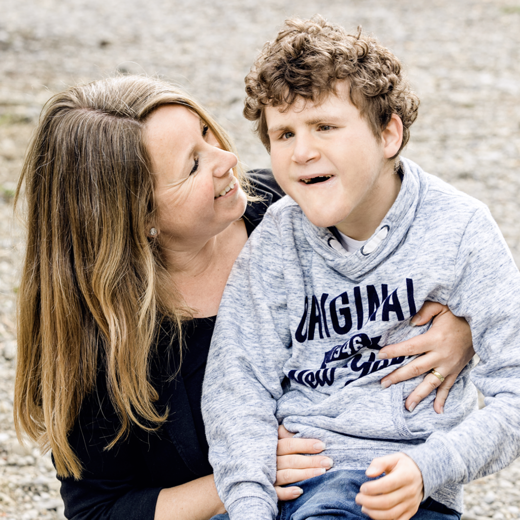
"People have mercy on Naim. You don't have to."
At the age of twelve, Naim has long since disproved the doctors' prognoses. The boy has a genetic defect so rare that it doesn't even have a name. He can neither speak nor walk, has to be fed and cared for around the clock. And yet his parents manage the balancing act between everyday life with a severely disabled child and the turbulent family life with three healthy children. Their unshakeable belief in life gives them courage.
Daniel Marti: Practice for Psychosomatics and Psychotherapy Zurich

"I'm there when life is turned upside down."
living with a seriously ill child also puts a strain on the relationship between husband and wife. In addition to their role as parents, couples also have to maintain their relationship. I have seen couples whose relationship was extremely strained and even fell apart due to the strain of everyday life with a seriously ill child. Sometimes, however, a relationship grows in the face of difficulties
FMH specialist in child and adolescent psychiatry and psychotherapy, practice for psychosomatics and psychotherapy Zurich
AFFECTED FAMILIES - LACK OF ACCEPTANCE OF THE CHILD / FEELINGS OF GUILT - JONATHAN - DUCHENNE MUSCULAR DYSTROPHY
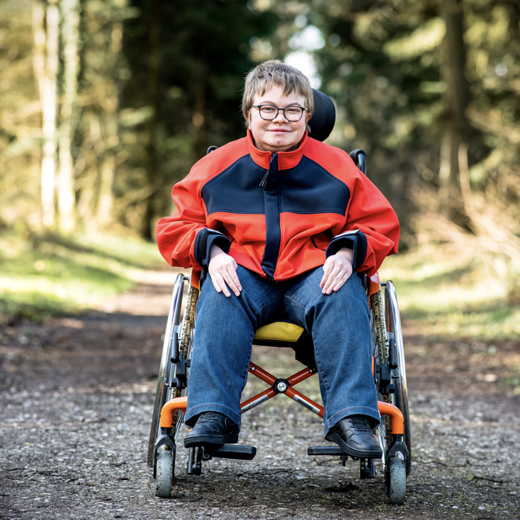
The light in the tunnel
What does it feel like when the child you have longed for for years is finally born chronically ill? Margot, Samuel and sixteen-year-old Jonathan are a small family from the canton of Bern who have experienced just that. The teenager is affected by Duchenne muscular dystrophy and is confined to a wheelchair. Jonathan not only has to cope with the natural lows that come with his illness, but also with the side effects of his medication. Faith is a great source of strength and support for the family.
Christoph Büschi: Center for children with sensory and physical impairments ZKSK AG
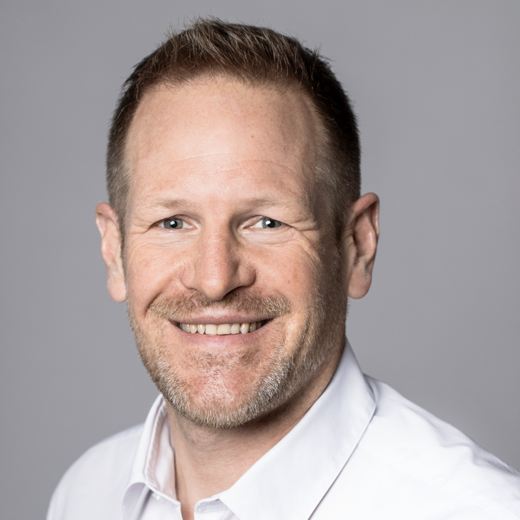
A rocky road to the world of work
The process of finding a career is a major challenge for young people with a disability. This is also the case for 16-year-old Jonathan. For them, there can be no question of actually choosing a career. The choices are very limited and the young people concerned have to say goodbye to many a career aspiration. At the same time, I rarely see anyone here at the center who struggles with their situation. On the contrary - the young people are usually very positive and optimistic about the future.
Head of Vocational Guidance/Vocational Integration, Center for Children with Sensory and Physical Disabilities ZKSK AG
AFFECTED FAMILIES - EXCESSIVE DEMANDS IN EVERYDAY LIFE - LEONARDO - DEFORMATION TPM3-GEN
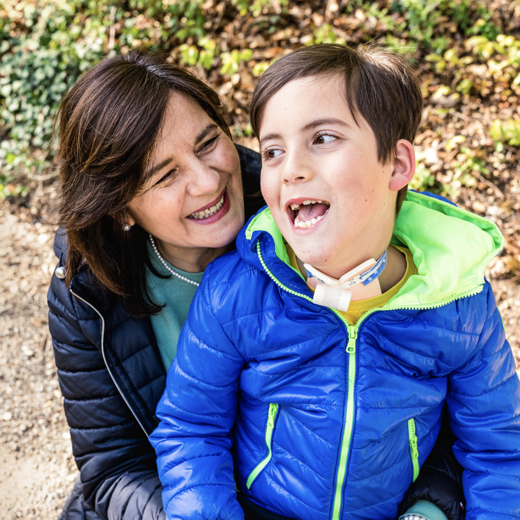
In the midst of life despite an initially gloomy prognosis
The doctors said that Leonardo would probably never be able to walk or talk. Today he is nine years old, walks around happily and can talk like a waterfall - if he wants to. The family of five from Wettingen can even go on vacation together and Leo even dual-skis. "We hope that Leo will be able to lead an independent life one day. Even his physiotherapist said we'd chosen the right name for him, that he's a real lion, a fighter," says his mother.
Jolanda Scherler: Swiss Children's Hospice Foundation
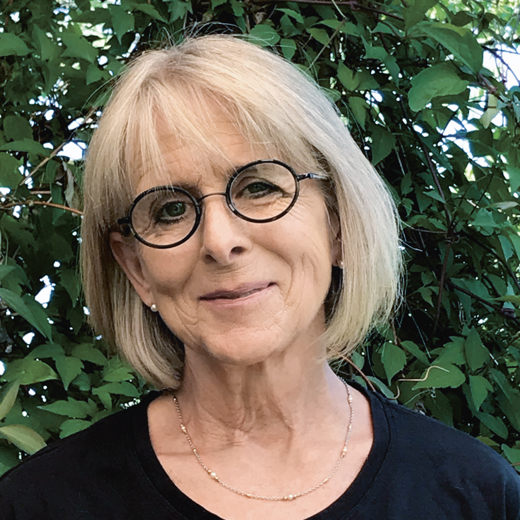
Families are experts in their children's everyday lives - we take the pressure off them with vacations in Davos
Jolanda Scherler was the good angel who not only organized vacations together for the family and accompanied them, but also gave them the courage to venture out without support. The 61-year-old is delighted when people tell her this. She is well aware of the fears that families of children with life-limiting illnesses have to contend with. She has a few tricks to alleviate at least some of these fears. "It's nice to see that we were able to give them the courage to realize that vacations together are possible."
Coordinator Family Holiday Weeks, Swiss Children's Hospice Foundation
AFFECTED FAMILIES - SOCIAL ISOLATION / WITHDRAWAL - LIO - AUTISTIC, MODERATELY MENTALLY AND PHYSICALLY DISABLED

Lio and his family: the long fight out of lifelong isolation
Premature, a caesarean section and unable to breathe: Lio's start in life was anything but rosy. The diagnosis of "autism with moderate mental and physical disabilities" was the last straw for the little family. They withdrew completely from social life, because: "For me personally, this self-determined withdrawal was the only way to do justice to my child and not be destroyed by the situation myself," says mom Melanie. Today, Lio is doing better than ever. The 10-year-old has made great progress and is now considered to have a learning disability without any intellectual impairment.
Elsbeth van Dam: Lio's grandmother

"I am immensely proud of my daughter and grandson"
Elsbeth van Dam was looking forward to the birth of her grandson. The complications after the birth and the baby's disabilities, which were later confirmed by doctors, hit the 71-year-old hard. In contrast to acquaintances and friends, she did not distance herself from her daughter and the baby, but became their closest and only ally. "I tried to listen, talk about feelings and fears and just be there. Talking things out makes them more tangible, more real and perhaps also more solvable. Sometimes it's just a hug, or being silent and sad together."
Grandmother of Lio
AFFECTED FAMILIES - FINANCIAL CHALLENGE - ALESSIA - AUTISM
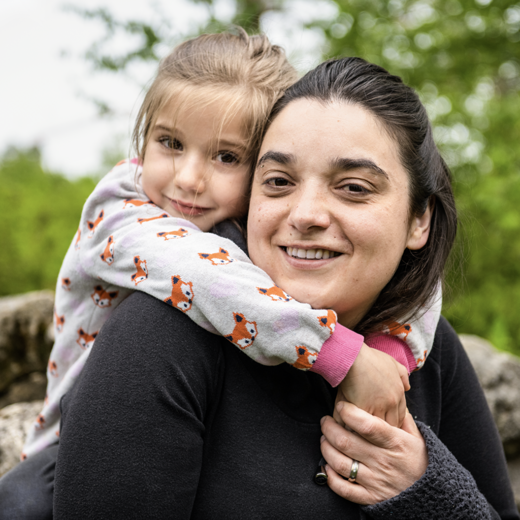
Single parent, financially and with their strength at the limit
Two sisters who couldn't be more different: There's hyperactive Leonie, who always has to be on the go, who doesn't like peace and quiet or sitting still at all and is plagued by constant nervousness. And then there's Alessia, who needs peace and quiet and the same routine all the time, who lives in her own world. And in between is mother Vania, 37 years old, a single parent and always on the edge of her strength. Vania not only has to look after her demanding daughters, she also has to work, cope with the challenges of everyday life and somehow keep her head above water financially.
Stephanie M. Fritschi: Schreibfee.ch
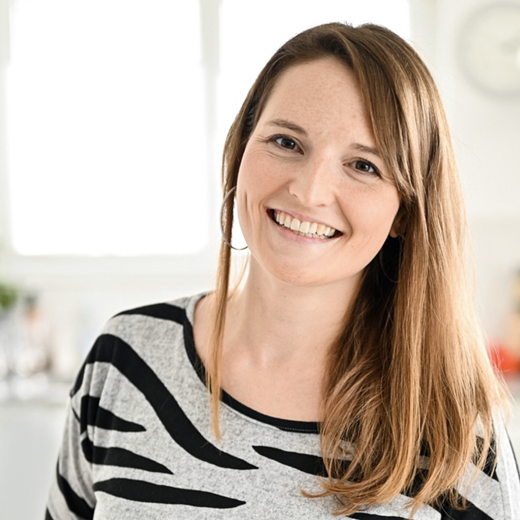
Accepting help with financial bottlenecks
Stephanie M. Fritschi is herself the mother of a child with special needs and knows only too well the administrative challenges that affected families face. Thanks to her professional and private background, she not only has an overview of the administrative jungle, but can also put herself in the shoes of affected families. She says: "It's worth seeking help immediately after diagnosis and getting advice on applications!"
Owner of Schreibfee.ch
AFFECTED FAMILIES - DIFFICULTIES IN THE WORKPLACE - ELI - BRUNNER SYNDROME WITH AUTISTIC SPECTRUM DISORDER
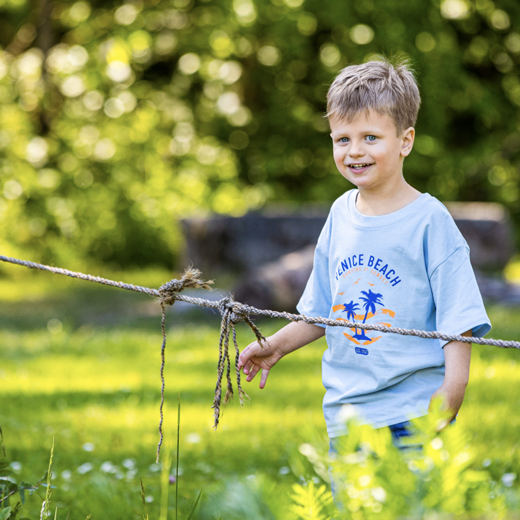
Consciously taking time for each other is important
Eli's birth completely changed the Bachmann family's life. He had to spend the first two weeks in the neonatal unit and from the age of 9 months, various assessments were carried out as Eli behaved and developed differently to children of the same age. At 16 months, he was diagnosed with autistic spectrum disorder and genetic testing also revealed Brunner syndrome. Despite Eli's demanding care, Sabine doesn't want to give up her work: "It brings some variety into my everyday life and I can also talk and exchange ideas about other topics.
Irene Belser: City of Winterthur
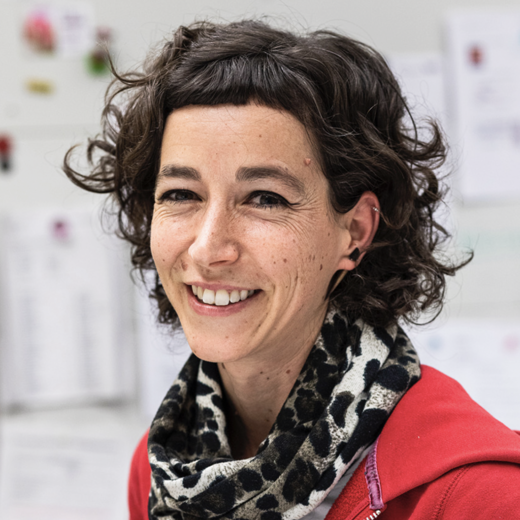
Difficulties at work - what solutions are there?
Balancing caring for a seriously ill child and a job is a challenge for affected parents. "In the beginning, it can perhaps be too much of a burden to juggle caring for a sick child and your job. Later on, however, it can also be a welcome change from everyday family life and do you good if you can pursue a job as a mother," says Irene Belser. The important thing is to first try to assess whether it is sustainable and feasible for the family situation.
Head of Special Services Spitex, City of Winterthur
AFFECTED FAMILIES - CHALLENGES IN THE COUPLE RELATIONSHIP - LYNN - GLYCOGENOSIS TYPE 1A
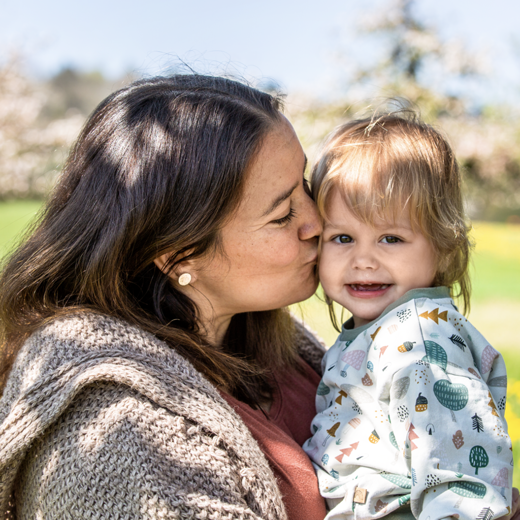
Acceptance for dealing with difficult situations individually
Children disrupt life as a couple and shift your own priorities. Ronja and Markus, whose daughter Lynn suffers from a rare metabolic disorder and has to be tube-fed and follow a strict diet, also had to realize this. The challenges associated with this have taught Ronja and Markus that everyone deals with strokes of fate differently. "The only thing that matters is that you actively deal with the situation," says Ronja.
Gabriela Oertli: CANARIO Practice for Music Therapy and Family Counseling
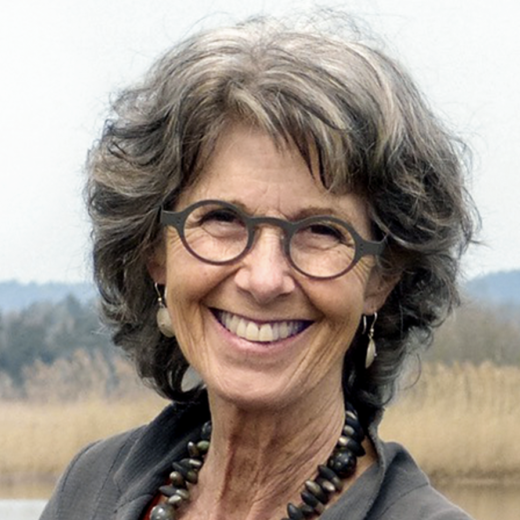
Challenges in the couple relationship
When a child is affected by a rare disease, the couple's relationship is also put to the test. Saying goodbye to the desired and hoped-for life plan is a lengthy process and can pose big, existential questions for the parents, such as: "Can our relationship cope with the new challenge? What does our child mean for our joint future plans? Does saying yes to our relationship also mean saying yes to our impaired child?"
Couples and family therapist, CANARIO practice for music therapy and family counseling
AFFECTED FAMILY - OPEN COMMUNICATION - JANIS - SEPSIS ENCEPHALOPATHY WITH CORTEX EDEMA
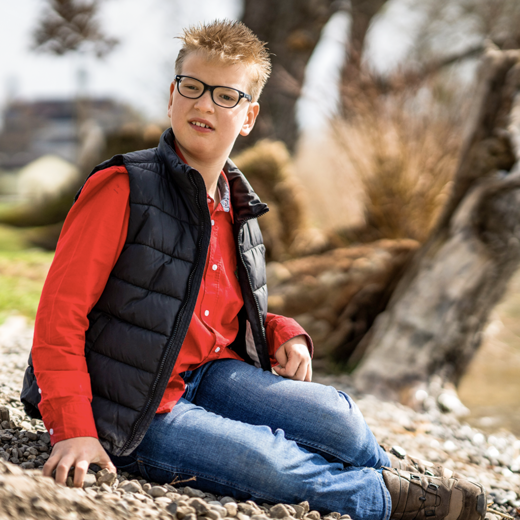
The balancing act between openness and the need for normality
The start in life could not have been more difficult for Janis, who is now 11 years old: He was born prematurely at 34 weeks' gestation, struggled to breathe and spent the first few weeks of his life in hospital. As soon as the little boy seemed to be getting better, the doctors diagnosed a narrowing of the pylorus, which led to an operation. The infant suffered blood poisoning, which severely and permanently damaged his brain.
Michèle Widler: University Children's Hospital Basel (UKBB) & Practice for Psychotherapy at Blumenrain in Basel
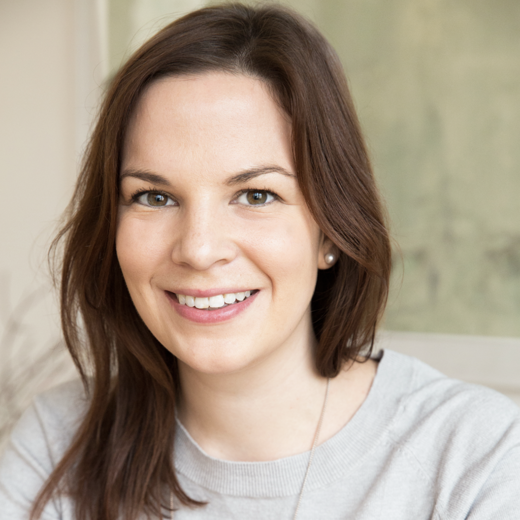
Communication is a sensitive topic and varies greatly from person to person
As different as parents, children, illnesses or impairments are, communication is just as different. Communication is not only a challenge for the affected family, but also for those around them. Especially with a new diagnosis, it is difficult to put what has been experienced into words. Families go through a challenging adjustment process that is characterized by stress, uncertainty and traumatic elements.
Psychotherapist in the Pediatric Palliative Care Team at the University Children's Hospital Basel (UKBB) and in the practice for psychotherapy at Blumenrain in Basel
AFFECTED FAMILIES - DEALING WITH SIBLINGS - TOBIAS - NOONAN SYNDROME
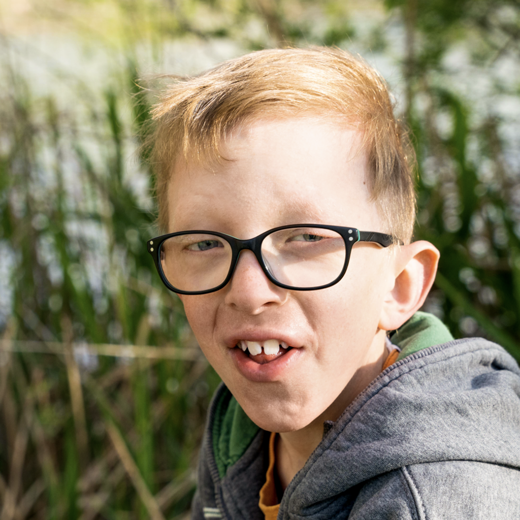
The story of two brothers who need as much closeness as they do distance.
Tobias has Noonan syndrome, a genetic defect of chromosome 12. His younger brother Philipp is healthy. The story of two brothers who need as much closeness as they do distance. "When Tobias was born, he only opened his eyes after a few days, and only halfway. As a mother, I immediately sensed that something was wrong," says Elisabeth. She is a nurse in the intensive care unit and has a good feel for people with illnesses.
Sara Fischer: Psychotherapist and specialist psychologist
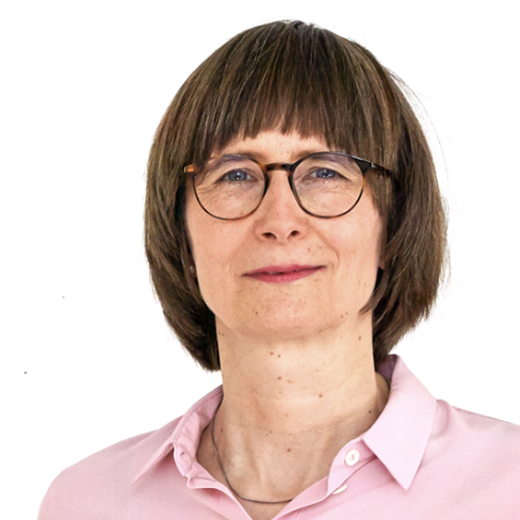
Education helps to create understanding
Families who have both healthy and sick children with a rare disease know all too well that the dilemma of giving both children the attention they need so that neither feels disadvantaged is great. Healthy siblings sense this and often withdraw - wrongly. It is therefore worth seeking help from experts at an early stage.
Federally recognized psychotherapist and specialist psychologist FSP
AFFECTED FAMILIES - LIMITS OF RESILIENCE - VALENTINA - PITT-HOPKINS SYNDROME
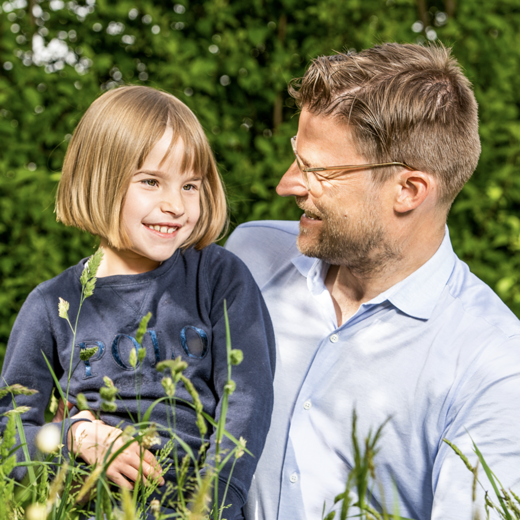
It doesn't help if we parents are broken by it!
Valentina has the very rare Pitt-Hopkins syndrome. Her parents Maria and Wolfgang talk about the strategies they use to overcome the challenges and the activities that help them recharge their batteries. The couple show how they manage to stay balanced and cheerful in order to be fully there for their daughter. "It's important to complement each other well as a couple. For example, I recognize when Wolfgang needs a break and vice versa."
Sarah Müller: Swiss Respite Service, Canton of Zurich
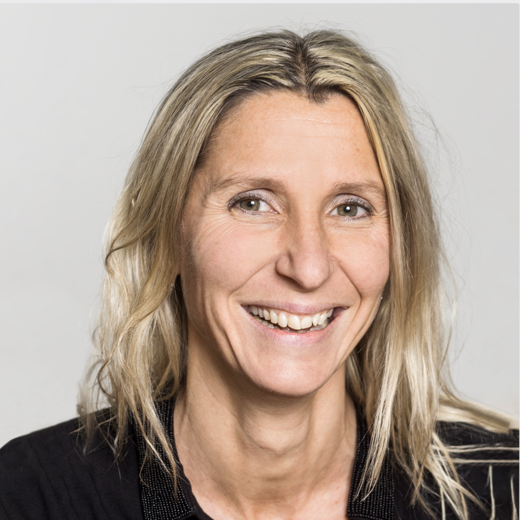
The limits of resilience - how parents can deal with them
All parents know the challenges that children bring with them. With chronically ill children, there are additional burdens: Hospital stays, therapies, intensive care and support. Valentina's parents describe this under the title Intensive therapies instead of vacation. Then there is the worry about the child, the feeling of not being able to cope with everything and everyone, and existential hardship. Accepting help is a strength and provides respite.
Managing Director, Entlastungsdienst Schweiz, Canton of Zurich
AFFECTED FAMILIES - PSYCHOLOGICAL SUPPORT FOR MOTHERS - JON - STXBP1 DISORDER, EARLY CHILDHOOD AUTISM, CEREBRAL PALSY
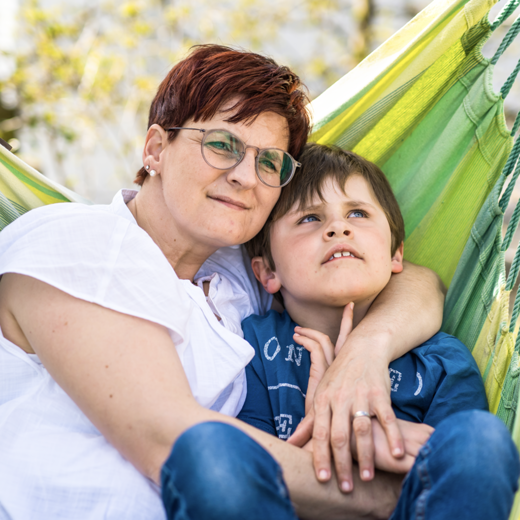
A fulfilling family life with professional help
Jon, now nine years old, was born with the rare genetic defect STXBP1. He has early childhood autism and cerebral palsy, which is why he needs constant care. The high level of stress and her son's health problems meant that mother Ann-Britt had to seek professional help. She advises other affected families to seek support in good time. "The most important thing I've learned is that I need to plan my downtime," she says.
Michael Villiger: Psychiatric care Muolen
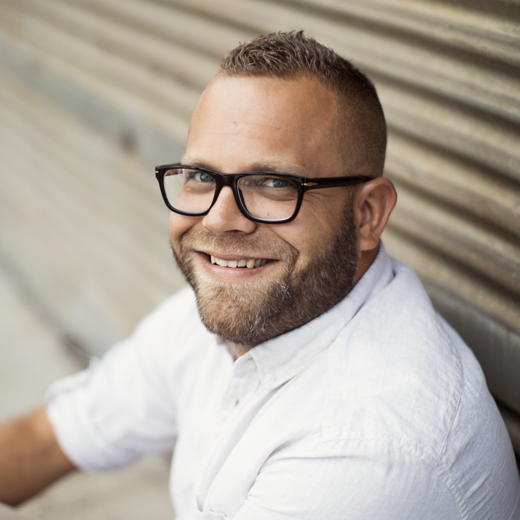
"Giving the child the best possible support"
Living with a child with special needs requires a tight organization of everyday life. Especially when both parents are working, many threads have to be spun in the background. So that the child gets the care it needs. A lot of unforeseen things can happen in life with an impaired child. Many things turn out differently than planned. The desire to please everyone can lead to a great deal of strain and stress for the parents.
Certified nursing specialist HF, Psychiatric Nursing Muolen
AFFECTED FAMILIES - DRAWING STRENGTH AS A MOTHER - LEONIE - PARTIAL TRIESOMY 6Q
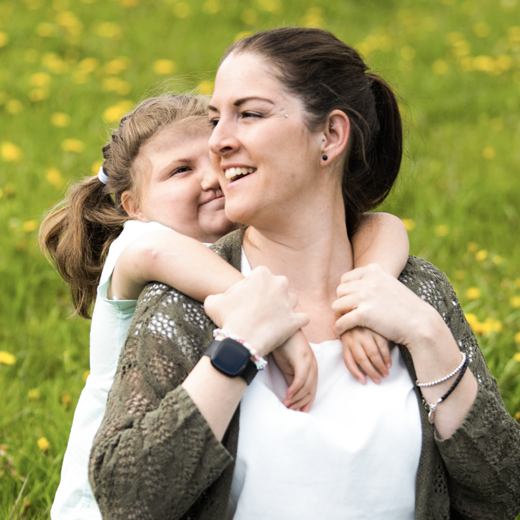
The little miracle Leonie
7-year-old Leonie demands a lot from her mother Martina. The girl has an extremely rare genetic defect, cannot walk and can only communicate with a few words. She is permanently "glued" to her mother, cannot occupy herself for five minutes and needs 24/7 care. For Martina, little breaks are extremely important so that she can recharge her batteries for her challenging everyday life.
Jasmine Mayr: Kinderspitex Ostschweiz
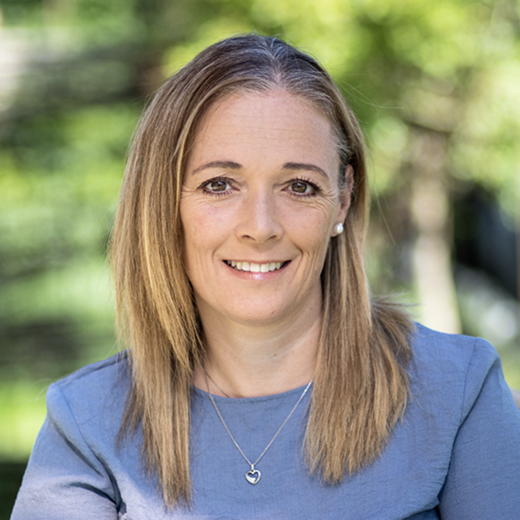
How affected moms can draw new strength
"Break" - how is that possible with a severely disabled child? For affected mothers in particular, it is vital that they can regularly take short breaks and recharge their batteries. Because: "The child is always as well as the mother is," says Jasmine Mayr. That's why it's so important to organize relief and create specific time slots for yourself. Sometimes it doesn't have to be long, it's more important that the mother can really switch off.
Nursing specialist, Kinderspitex Ostschweiz
AFFECTED FAMILIES - DRAWING STRENGTH AS A FATHER - MICHELLE - CDKL5 - GENETIC DEFECT
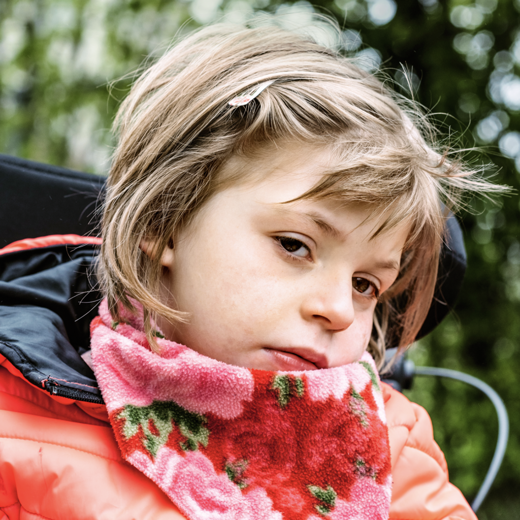
Michelle opens up a world to us that is unique and special
Patric and Manuela, together with Michelle and Severin, radiate a concentrated joy of life. They are a family that has both feet on the ground and lives dynamism, flexibility and a sense of practicality. Movement is central to this - in both senses of the word. It applies to them as well as to others. Because it quickly becomes clear that this family is part of a strong network of relationships that stretches around the world and which they actively help to shape.
Friedrich Dieter Hinze: Psychologist, freelance trainer, coach, author and consultant
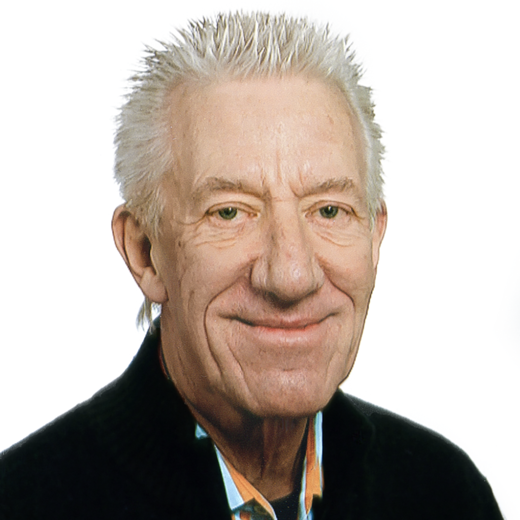
Fathers are more emotional than their objectivity suggests
In challenging situations, differences become even more apparent. We know that men and women react and act differently in the same situation. Psychologist Dr. phil. Friedrich Dieter Hinze. In particular, he discusses the opportunities available to affected fathers.
Psychologist, freelance trainer, coach, author and consultant
AFFECTED FAMILIES - SEPARATION - COPING WITH A CRISIS SITUATION - ARTEMIS - CAUDAL REGRESSION SYNDROME CRS
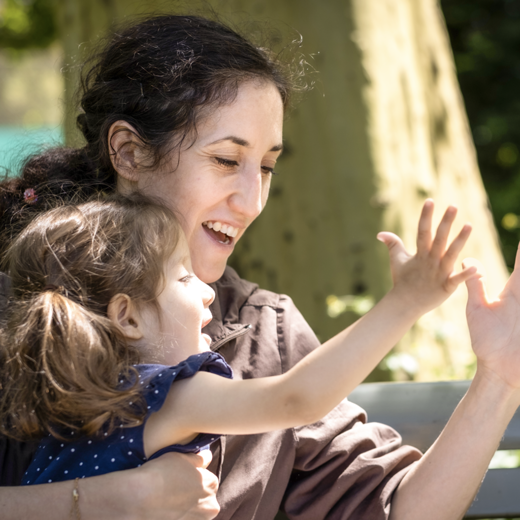
"Couples who have a child who is not healthy are under great stress"
Sarah and her ex-husband had a daughter who was born with a disability. Their young marriage could not withstand the pressure, the fears, the pain and all the misunderstandings that came to light. Sarah: "I think ultimately it's about what you can take. Everyone deals with existential crises differently. At best, it can weld a couple together, at worst, different worlds collide."
Beatrice Bucher: Psychosocial counseling in Uster
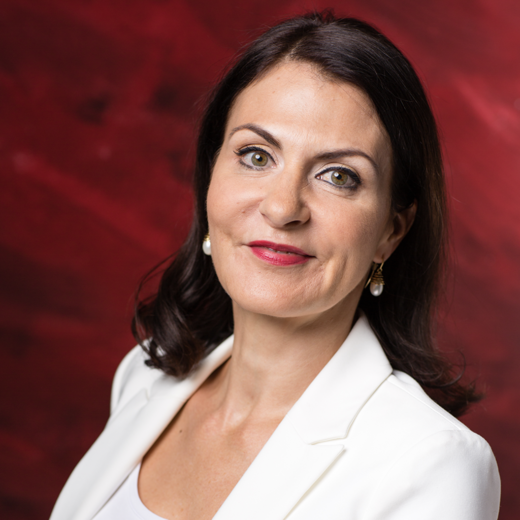
"A separation or divorce always hurts. For the parents, for the children, whether healthy or ill."
A disabled or sick child is an immense challenge for a couple. Many relationships break up, some figures speak of up to 80 percent of parents of disabled children who separate. Beatrice Bucher also says: "I can't recommend staying together in an ongoing dispute for the sake of the child. Especially if you want to continue being good parents".
Consultant SGfB, Psychosocial Counseling Uster
AFFECTED FAMILIES - TRANSITION TO THE ADULT WORLD - MATAN - EHLER-DANLOS SYNDROME, HYPERMOBILE TYPE, CRPSHEDS
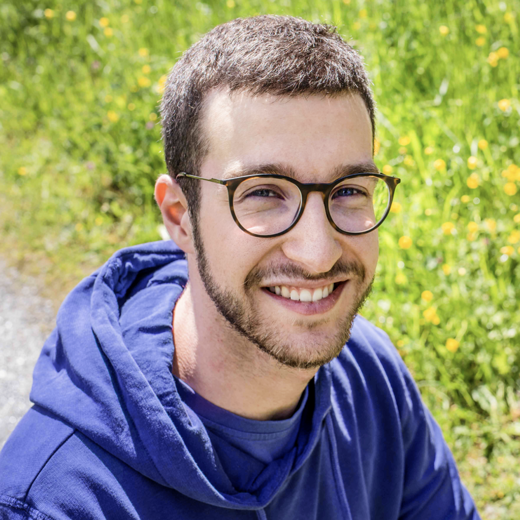
When children grow up and take on responsibility
When children with rare diseases grow up, the whole family faces new challenges. Matan's transition to adult medicine was accompanied by many unanswered questions. However, the story of the now 20-year-old physics student shows how life with EDS and the pain disorder CRPS can be very self-determined.
Matias Imbach: Milchbuck medical center, Zurich
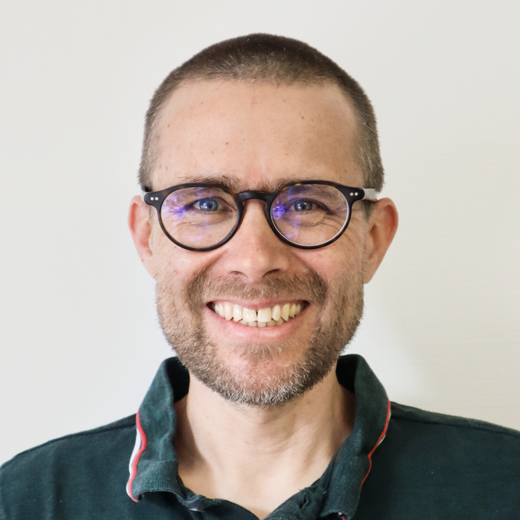
Young people in transition need committed doctors
The gradual transition of young people with chronic illnesses from pediatric to adult medicine is called transition. It is a significant psychosocial process that takes place within families. At the same time, young people between the ages of 15 and 20 are also faced with a variety of developmental tasks. GPs can support those affected in this vulnerable phase. By being open and prepared.
Specialist in general internal medicine, Milchbuck Medical Center, Zurich
